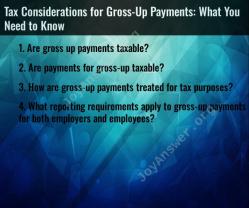Are credit unions insured by the government?
Yes, credit unions in the United States are insured by the government through the National Credit Union Administration (NCUA). The NCUA is an independent federal agency that regulates and supervises federal credit unions and insures savings in federal and most state-chartered credit unions through the National Credit Union Share Insurance Fund (NCUSIF).
Here's how credit union insurance works:
NCUA Insurance: The NCUA provides insurance coverage for deposits held at credit unions. This insurance is similar to the Federal Deposit Insurance Corporation (FDIC) insurance that covers deposits at banks. The NCUA's insurance program is known as the National Credit Union Share Insurance Fund (NCUSIF).
Coverage Limits: The NCUA insurance typically provides coverage of up to $250,000 per account holder per federally insured credit union. This means that if you have accounts at multiple credit unions, each account may be separately insured up to the coverage limit.
Safety of Deposits: The purpose of NCUA insurance is to protect the savings of credit union members and ensure the safety of their deposits. If a credit union were to fail or become financially distressed, the NCUA would step in to protect members' deposits.
Federal and State Chartered Credit Unions: NCUA insurance covers deposits in federally chartered credit unions as well as most state-chartered credit unions. Some state-chartered credit unions may have private insurance, but the vast majority are covered by NCUA insurance.
Peace of Mind: NCUA insurance provides peace of mind to credit union members, assuring them that their deposits are backed by the full faith and credit of the U.S. government.
It's important to note that the NCUA insurance covers deposits held at credit unions, including savings accounts, checking accounts, certificates of deposit (CDs), and other deposit products. However, it does not cover investments in stocks, bonds, mutual funds, or other non-deposit products. If you have questions about the insurance coverage for your credit union deposits, you can contact your credit union or visit the NCUA's official website for more information.
Government Insurance and Credit Unions: What You Need to Know
Credit unions are financial institutions that are owned by their members. They offer a variety of banking services, including checking and savings accounts, loans, and credit cards.
Credit unions are insured by the National Credit Union Administration (NCUA). The NCUA is an independent agency of the United States government. The NCUA insures deposits up to $250,000 per depositor, per insured credit union.
Credit Unions and Government Backing: Exploring the Insurance Aspect
The NCUA's share insurance program is backed by the full faith and credit of the United States government. This means that if a credit union fails, the NCUA will pay depositors up to $250,000 per depositor, per insured credit union.
Understanding Credit Union Security: Government-Backed Insurance
Government-backed insurance gives credit union members peace of mind knowing that their deposits are safe. It also helps to protect the credit union system as a whole.
Here are a few things to keep in mind about credit union insurance:
- Credit union insurance covers deposits in checking and savings accounts, money market accounts, and share certificates.
- Credit union insurance covers deposits held in individual and joint accounts, as well as trust and IRA accounts.
- Credit union insurance does not cover investments in stocks, bonds, or mutual funds.
If you are considering opening a bank account or credit union account, I encourage you to consider a credit union. Credit unions offer a variety of banking services and government-backed insurance.












